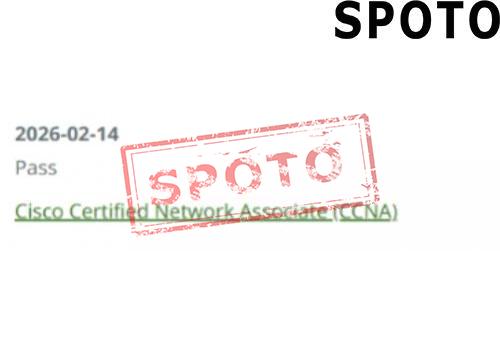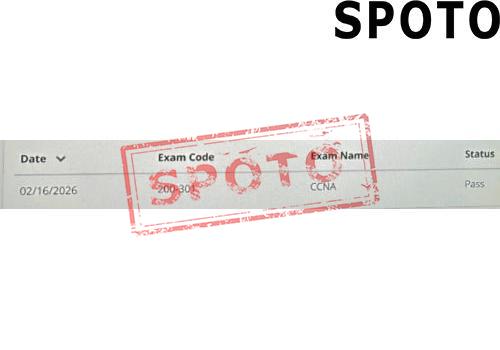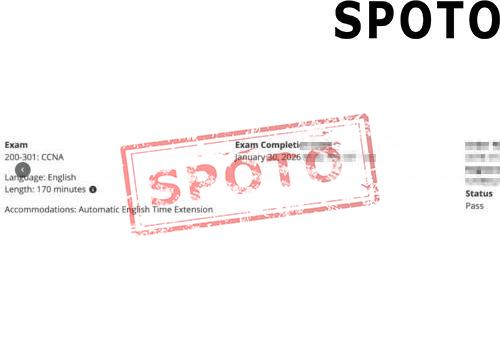
Table of Contents
Deciding between CCNA and CCNP certification can shape your networking career trajectory. Both Cisco credentials validate your expertise, but they serve different roles, experience levels, and salary expectations. This guide compares the CCNA path and the CCNP certification path, focusing strictly on career outcomes—job roles, earning potential, industry demand, and career progression—to help you choose the right certification for your goals.
Certification Overview
| Aspect | CCNA | CCNP |
|---|---|---|
| Level | Associate | Professional |
| Prerequisites | None formally (1 year recommended) | None formally (3–5 years recommended) |
| Exams | Single exam (200‑301 CCNA) | Two exams: core + concentration (e.g., ENCOR + ENARSI) |
| Focus Areas | Fundamental networking: routing, switching, IP, security, automation | Advanced enterprise networking: design, security, automation |
| Renewal | Every 3 years via exam or CE credits | Every 3 years via exam or CE credits |
Career Outcomes: CCNA
Job Roles and Responsibilities
Earning CCNA certification prepares you for entry‑level to junior networking roles. Common positions include:
-
Network Administrator
Install, configure, and maintain routers, switches, and wireless controllers. -
Network Support Engineer / Technician
Troubleshoot connectivity issues, monitor network performance, assist end‑users. -
Help Desk Engineer
Resolve basic network and application problems, escalate complex issues.
These roles emphasize hands‑on device configuration, basic routing (OSPF, EIGRP), VLAN setup, and network troubleshooting.
Salary Expectations
CCNA professionals in the United States can expect average base salaries between $60,000 and $95,000, depending on experience and location. Entry‑level positions often start around $60K, with mid‑level Network Administrators earning up to $95K as they gain proficiency.
Industry Demand
With digital transformation and remote work trends, demand for CCNA‑certified talent remains steady. Approximately 200,000+ networking job openings in the U.S. list foundational Cisco skills as requirements each year. Organizations across sectors—healthcare, finance, education—seek CCNA‑level expertise to maintain and secure their networks.
Career Outcomes: CCNP
Job Roles and Responsibilities
CCNP certification opens doors to advanced networking and engineering roles such as:
-
Network Engineer
Design, implement, and optimize enterprise LAN/WAN architectures; configure advanced routing (BGP, OSPF, MPLS), QoS, and VPNs. -
Systems Engineer / Infrastructure Engineer
Integrate network solutions with servers, virtualization platforms, and cloud services; lead automation projects. -
Network Security Engineer
Architect and enforce security policies, implement firewalls, IDS/IPS, and VPNs at scale. -
Network Architect
Define high‑level network design and growth strategies for large organizations.
Responsibilities include large‑scale network design, automation (Ansible, Python), SD‑WAN deployments, and troubleshooting complex outages.
Salary Expectations
CCNP‑certified professionals command higher salaries, typically ranging from $100,000 to $135,000 in the U.S. Senior Network Engineers and Infrastructure Engineers can earn up to $150K+, especially in high‑cost markets or specialized industries.
Industry Demand
As networks grow in size and complexity, CCNP skills are increasingly sought. Advanced projects—cloud integration, network automation, security hardening—drive demand for CCNP talent. Many enterprise and service‑provider roles list CCNP or equivalent experience as a requirement.
Certification Paths Compared
| Feature | CCNA Path Certification | CCNP Certification Path |
|---|---|---|
| Time to Complete | Typically 3–6 months | 6–12 months (post‑CCNA experience recommended) |
| Exam Structure | One exam covering all domains | Two exams: one core + one track specialization |
| Cost | ~$300 total (exam + training) | ~$600–$900 total (exams + training) |
| Career Entry Level | Junior networking roles | Mid‑ to senior‑level engineering and design |
| Skill Depth | Broad fundamentals | Deep specialization |
Which Path Is Right for You?
-
Choose CCNA if you are new to networking or transitioning from help desk/IT support. CCNA lays a strong foundation, validates your essentials, and prepares you for immediate roles in network administration and support.
-
Choose CCNP if you have at least 2–3 years of hands‑on networking experience and aim for senior engineering, architecture, or specialized security roles. CCNP accelerates career growth into strategic and leadership positions.
Many professionals start with CCNA, gain practical experience, then pursue CCNP to advance. However, experienced networkers comfortable with associate‑level topics may opt to prepare directly for CCNP.
Frequently Asked Questions
Q: What is the main difference between CCNA and CCNP?
A: CCNA is an associate‑level certification focused on networking fundamentals. CCNP is a professional‑level certification requiring deeper expertise and two exams, tailored for complex enterprise environments.
Q: Do I need CCNA before CCNP?
A: Cisco does not mandate CCNA as a prerequisite for CCNP, but CCNA‑level knowledge or equivalent experience is strongly recommended to succeed.
Q: Which certification offers a better salary?
A: CCNP‑certified professionals generally earn 15–25% more than CCNA holders, with average U.S. salaries from $100K to $135K versus $60K to $95K.
Q: How long does it take to earn each certification?
A: CCNA typically takes 3–6 months of study for newcomers. CCNP requires preparation for two exams and usually takes 6–12 months, assuming a solid CCNA or equivalent background.
Q: What jobs can I get with CCNA?
A: Typical CCNA roles include Network Administrator, Help Desk Engineer, Network Technician, and IT Support Specialist.
Q: What jobs can I get with CCNP?
A: CCNP qualifies you for Network Engineer, Systems Engineer, Network Security Engineer, and Network Architect roles.










